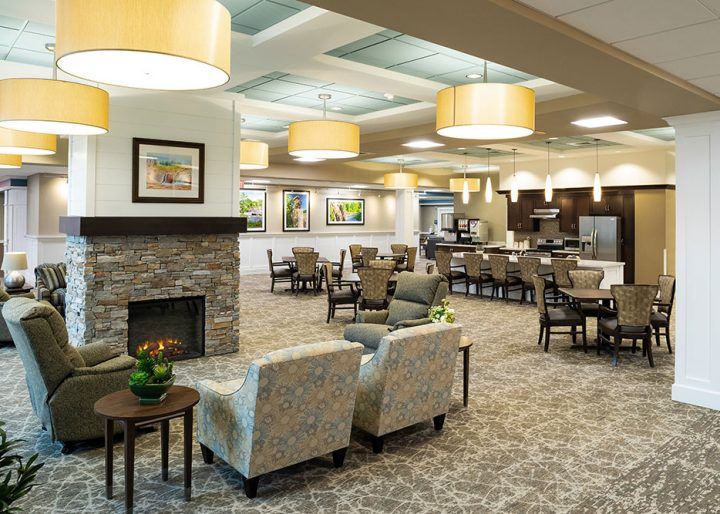Enjoy a routine-based lifestyle in a secure Memory Care environment.
Enjoy a routine-based lifestyle in a secure Memory Care environment.
Blog Article
Recognizing Exactly How Aided Living Sustains Individuals With Dementia Treatment Requirements
Assisted living centers are progressively identified for their essential role in attending to the complex treatment requirements of individuals with mental deterioration. By using an organized yet nurturing atmosphere, these facilities not only promote safety and security and health yet also foster a sense of autonomy via customized care plans.
Review of Mental Deterioration Care
Dementia treatment is progressively vital as the occurrence of dementia-related conditions rises amongst aging populations. This expanding group trend demands a thorough understanding of dementia and the various methods to care. Dementia includes a variety of cognitive impairments that hinder day-to-day live, impacting memory, reasoning, and interaction capacities. The condition can differ significantly in its presentation, needing customized care methods to meet individual needs.
Efficient mental deterioration care involves a multidisciplinary technique, incorporating clinical, mental, and social support. Health care specialists, caregivers, and member of the family have to work together to create a nurturing environment that promotes the well-being of people with mental deterioration. Trick components of mental deterioration care include personalized treatment plans, cognitive excitement therapies, and behavior interventions intended at improving lifestyle.
Moreover, it is essential to identify the emotional and emotional obstacles dealt with by both people and caregivers. Education and training for caretakers play a critical role in cultivating understanding and empathy, thus boosting communications with those influenced by mental deterioration. As the demand for mental deterioration care remains to climb, the emphasis should remain on supplying compassionate, person-centered care that appreciates the dignity and preferences of people coping with this problem.
(Dementia Care Charlotte)
Duty of Assisted Living Facilities
Helped living facilities play an important function in giving take care of people with dementia, using a supportive setting that balances self-reliance with the necessary assistance. These centers are made to cater to the special demands of citizens, advertising a sense of area while making certain safety and security and wellness.
In an assisted living setup, trained personnel offer 24/7 support, helping with day-to-day tasks such as showering, dressing, and medicine monitoring. This level of treatment is critical for individuals with dementia, that may deal with these jobs due to cognitive decline. In addition, centers frequently integrate memory-enhancing programs and social activities tailored to promote cognitive performance and motivate social communication.
The physical atmosphere of nursing home is also maximized for safety, including secure entries, well-lit paths, and clear signs to aid homeowners navigate their surroundings. In addition, these communities foster a feeling of belonging, minimizing the sensations of isolation that individuals with dementia may experience.
Personalized Treatment Plans
To ensure that each resident obtains the most proper treatment, personalized care strategies are vital in assisted living facilities for people with dementia. These strategies are customized to satisfy the distinct needs, preferences, and difficulties encountered by each resident, advertising their self-respect and lifestyle.
The growth of a customized care strategy usually starts with a comprehensive analysis carried out by medical care professionals. Memory Care. This evaluation evaluates the individual's cognitive abilities, physical health, emotional well-being, and social choices. Input from member of the family and the resident themselves is critical, as it offers valuable insights into their history, routines, and individual passions
Once the analysis is total, a multidisciplinary group collaborates to produce a treatment strategy that describes certain goals and interventions. This might consist of medicine monitoring, daily living aid, and behavior techniques customized to alleviate anxiousness or agitation.
Normal evaluations and updates to the care plan guarantee it stays pertinent as the person's problem advances. Memory Care. By focusing on personalized care, aided living centers can enhance the overall wellness of residents with mental deterioration, fostering a setting that respects their uniqueness while addressing their treatment needs successfully
Engaging Tasks and Socializing
Involving activities and socializing play an essential duty in enhancing the lifestyle for locals with mental deterioration in assisted living centers. These activities are made to boost cognitive feature, promote emotional health, and foster connections among residents. Structured programs, such as art therapy, music sessions, and reminiscence therapy, give opportunities for people to reveal themselves artistically while also causing favorable memories.
Socialization is just as important, as it fights sensations of isolation and solitude that can come with mental deterioration. Team tasks, including games, group getaways, and communal dining, urge interaction and help locals build supportive connections with peers and caregivers. This feeling of community not just enriches their daily experiences yet additionally adds to a much more steady emotional atmosphere.
Additionally, involving activities can be tailored to specific choices and cognitive levels, ensuring that each citizen can get involved meaningfully. By developing an environment that prioritizes interaction and social interaction, assisted living facilities can substantially enhance residents' general psychological wellness, promoting a sense of purpose and belonging. Ultimately, these initiatives are important components of comprehensive dementia care, considerably impacting residents' total well-being website here and happiness.
Advantages of Community Support

Furthermore, area support advertises social communication, which is important for cognitive and psychological health. Involving with peers and getting involved in group tasks can improve mood and urge reminiscence, contributing to a greater feeling of belonging. This social involvement is important, as solitude and isolation can worsen cognitive decline.

(Memory Care Charlotte)
Final Thought
In verdict, aided living centers offer as essential settings for people with mental deterioration, providing organized assistance that promotes both freedom and safety and security. The execution of individualized care strategies makes certain that each local's special requirements are met, while involving activities advertise social communication and cognitive engagement.
Report this page